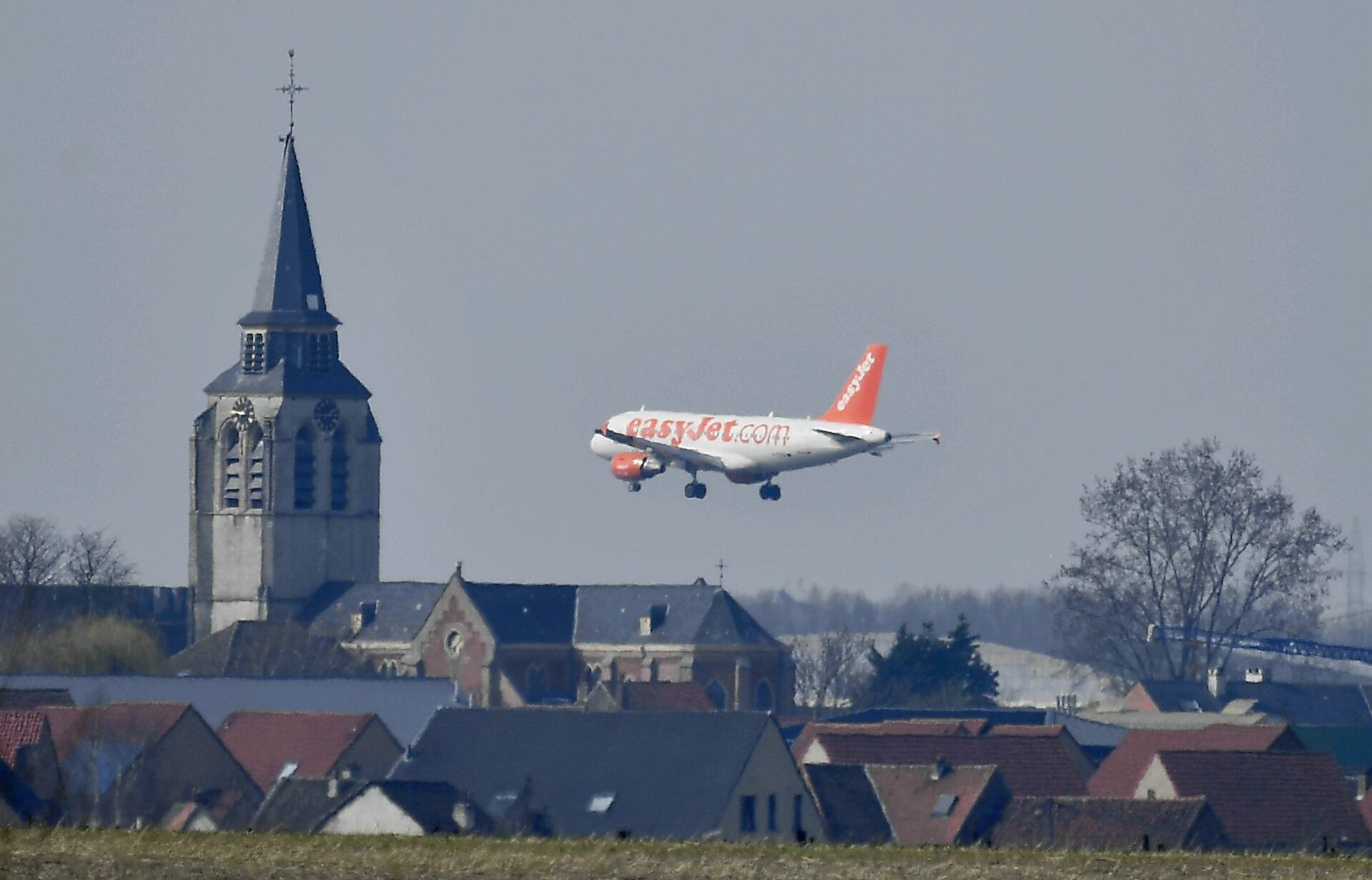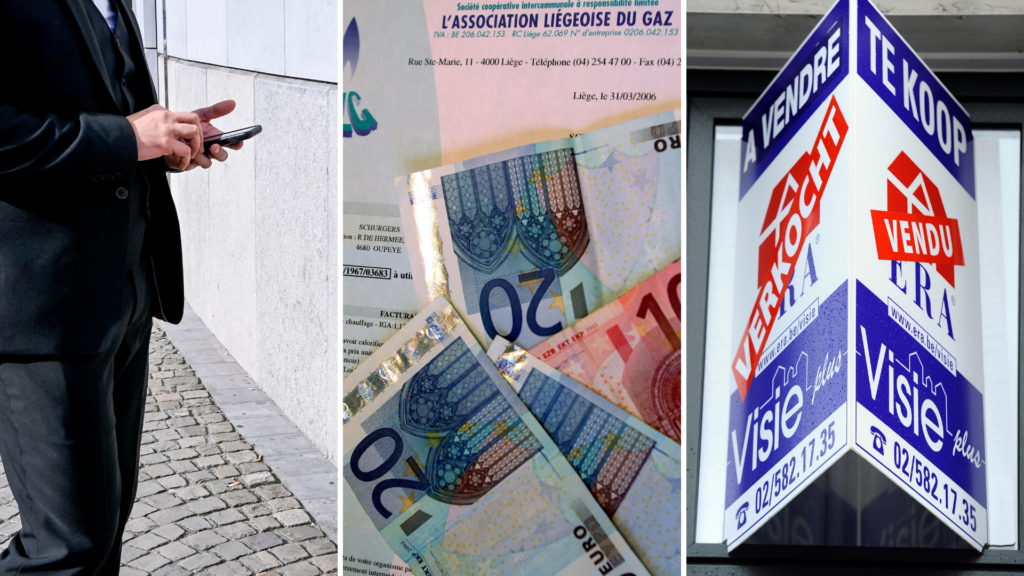The start of this month doesn't only mark April Fool's Day; it also marks the day when new laws in Belgium come into effect. This month, there will be changes to the employees' right to disconnect and VAT reductions on energy. Find out below what important changes will happen in the country in April.
Right to disconnect
One of the key measures as part of the labour deal reached by the Federal Government last year to ensure a better work-life balance is finally coming into force in practice. From Saturday 1 April, companies with at least 20 employees must have agreements in place on their staff's "right to disconnect."
In their collective agreement or labour regulations, these companies must include the legal right to be offline or unreachable outside working hours. Employers can then only contact their employees if there are unforeseen or specific circumstances that cannot wait, which must be laid out by the employer on paper.
This regulation has already been in force for Federal civil servants since 1 February last year, as Minister of Civil Service Petra De Sutter sent a circular making it clear that they no longer had to answer phone calls or emails after normal working hours.
(Even) more advantageous buying in Brussels
Brussels' "advantageous" regime, designed to purchase a property in the region cheaper, will be expanded. The changes to the abattement — a discount on registration duties, which is the regional tax the buyer has to pay on top of the purchase price of a property — are part of modifications to the regional system approved last year.
From Saturday, the tax allowance for registration fees is increased from €175,000 to €200,000, allowing prospective homeowners to save €25,000 on the first €200,000 bracket, while the ceiling above which a home no longer qualifies for the allowance is raised to €600,000.
An additional €25,000 is given for every "jump" in the energy class of a property due to renovations. Finally, the allowance for the purchase of building land will also be increased from €87,500 to €100,000. The reduction in fees has already proven effective in keeping the younger middle class in Brussels.

A recently sold flat in Brussels. Credit: Belga
However, some people receiving such a reduction are later forced to pay large sums of money back to the region for failing to meet the conditions, mainly for not moving into the property two years after purchasing it (mainly due to delays in renovations). This period will now be extended to three years.
Finally, homeowners who do not remain in their homes for the required five years will no longer have to repay the entire gain from the tax allowance, but an amount prorated according to the number of years they have lived in their homes.
Everything energy
From 1 April, the 6% VAT on gas and electricity will become permanent, as was announced last October. The VAT has been reduced, down from 21%, for almost a year as part of the "temporary" measure to reduce energy bills due to soaring prices caused by the war in Ukraine.
While this measure will remain in place, part of that cut will be offset by higher excise duties, which will also come into place on Saturday to make up for the loss of revenue to the public purse from such a VAT cut.
The calculation of the excise duty rate will be based on the difference in VAT between 21% and 6% paid on average per MWh in 2021. The new excise duty system will distinguish between basic consumption (3,000 kWh for electricity and 12,000 kWh for natural gas) and additional consumption. The excise duty on basic consumption will be reduced or increased if electricity or natural gas prices rise.
Related News
- 'A major handicap': Belgium's high electricity costs pose threat to its industrial base
- Belgium reduced demand for gas by a fifth in 2022
This scheme is expected to cost the average Belgian family almost €180 extra over this year, however, Finance Minister Vincent Van Peteghem argued that this will still result in a significant reduction in the bill for households compared to the standard VAT rate of 21%.
Meanwhile, the social tariff, which is set every three months and to which some 2 million people in the country are entitled, will increase by 7.7% for electricity to 30.782 cents per kWh and 9.5% for natural gas to 4.084 cents per kWh. This marks the fourth consecutive increase.
Finally, French utility company Engie announced it will be offering fixed year-long energy contracts (Easy Fixed contracts) to its customers from 1 April onward, becoming the second supplier in Belgium to do so following Luminus' announcement in December 2022.
These will be available in limited quantity and on a year-by-year basis. From Monday 3 April, Mega will also make fixed contracts available on its website to all consumers.
Polluting planes pay
From Saturday, new charges will come into force at Brussels Airport. Airlines coming to the airport with loud, polluting aeroplanes will have to pay more if they do not use a modern aircraft.
The noise an aeroplane makes will be taken into account more than before, resulting in the loudest, most polluting aircraft paying up to 20 times more than the quietest, most modern aircraft. For the first time, nitrogen oxide emissions are also taken into account.

An Easyjet aeroplane flying near Brussels Airport in Zaventem. Credit: Belga / Eric Lalmand
Brussels Airport sets airport charges, fees that airlines have to pay to use the airport operator's services, such as landing and take-off, parking and baggage handling which are indexed by an average of 11%, for five years at a time.
Meanwhile, from Saturday, the so-called terminal charge, a government-imposed fee that airlines pay for the services of "skeyes" air traffic controllers, will depend on aircraft noise, emissions, distance travelled (to discourage short-haul flights) and time of flight.
Depending on the performance and time of day, the levy will be 25% cheaper to 40% more expensive.
No more premiums for home batteries
The following change is only relevant to people living in Flanders, as the region will stop giving premiums to households for installing a home battery with an AREI inspection certificate.
The home battery allows households with solar panels to store the self-generated electricity they do not use immediately so they can use it later. They became increasingly popular as a result of rising energy prices and because Flanders provided premiums for their installation, amounting to around 40% of the total investment cost up to €1,725.
However, last year it was decided to phase out the premium faster than previously announced as an evaluation showed that the subsidy was "not needed to encourage citizens to invest in a home battery." It will use the released funds to support investment in a heat pump boiler for generating domestic hot water.

